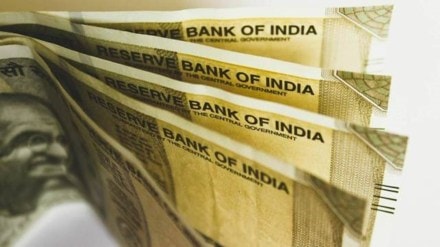The finance ministry may ease the terms for the new 20% tax collected at source (TCS) further, in a bid to allay the persisting concerns about the levy introduced in Budget FY24, as a monitoring tool for foreign remittances.
A new set of FAQs would be issued soon with regard to the tax, which is slated to take effect from July 1, and the liberalised remittance scheme (LRS), a senior official said on Friday, raising the hopes that a set of issues, including how exactly the personal and official forex payments of business travellers will be differentiated for the purpose.
Also read: IRB Infra May toll collection jumps 20 per cent on continued momentum
“We are certainly going to come up with some clarifications and FAQs on (the TCS) and that will clarify the position beyond any reasonable doubt on what & how and in what manner the TCS has to be collected,” Raman Chopra, a joint secretary with the revenue department, said at a CII event in Lucknow. He also said the FAQs would throw more light on the (forex payment) threshold for the tax to apply. “These are going to be clarified soon,” Chopra said, adding, “a lot of discussion on the matter has already happened in the finance ministry.”
While international credit card transactions for business purposes won’t invite the TCS, stakeholders are seeking clarity on what will qualify as personal expenditure or business expenditure during official trips.
After facing a backlash, the finance ministry on May 19 said that any forex payments by individuals using international debit or credit cards up to Rs 7 lakh ($844 at the current exchange rate) per financial year, will be excluded from the LRS limit and hence, will not attract any TCS.
In the Finance Act 2023, the TCS on remittances under LRS was raised from 5% to 20% with effect from July. While forex transactions through debit cards are already covered under LRS, credit card transactions would also be covered from July 1.
“The exclusion from LRS for business visits of employees should cover expenditures incurred by employees either by corporate credit card or individual credit card but the operational parameters to distinguish between business/official and personal expenditures need more clarity,” Sudhir Kapadia, partner, Tax & Regulatory Services, EY India, said.
The proposed clarifications are expected to give comfort to authorised dealers (ADs), who are mandated to deduct TCS.
Via a notification amending the relevant Fema rules on May 16, the government had brought credit card transactions by individuals under an annual LRS limit of $250,000, meaning any higher spend would require the Reserve Bank of India’s prior approval.
“The previous FAQs released by the ministry of finance mentioned that a detailed clarification would be issued with regard to the use of international credit cards for travel and educational purposes. Hence, we expect that the proposed clarification will throw light on what expenses would qualify as medical or educational expenses, especially expenses that are incidental to medical or education such as rent, hostel fees, food maintenance etc,” Neeraj Agarwala, partner, Nangia Andersen India, said.
In the TCS rejig on LRS, no changes were made to the existing TCS treatment for education and health payments. Currently, remittances for education done through a loan from a financial institution is subjected to a TCS of 0.5% beyond a threshold of Rs 7 lakh. Similarly, remittances for medical treatment attract 5% TCS beyond a threshold of Rs 7 lakh.
Also read: RBI permits FLDG between fintechs & banks, NBFCs
The ministry had said the primary impact of the higher TCS would only be on investment in assets such as real estate, bonds, stocks outside India by HNIs and on tour travel packages or gifts to non-residents. The hefty 20% TCS raised concern as it would lead to blocking of funds. The ministry said TCS can be claimed back while filing income tax refunds or as a credit and adjust it against advance tax. Experts, however, said one would not get the interest from the date of TCS but from April 1 of next year fiscal till the date of payment. Travel companies had opposed the move and banks are to face higher compliance burden.
